List of IELTS Cue Cards for Topic – Emotions
6 min read
Updated On
-
Copy link
Practice using the given list of IELTS cue cards for topic - emotions to achieve a score of 9 on the Speaking exam. Get sample answers with related IELTS vocabulary and discover some helpful techniques for managing different emotions cue cards.
Table of Contents

Limited-Time Offer : Access a FREE 10-Day IELTS Study Plan!
Every individual has their own way of handling their emotions, making the approach to emotions cue cards different. However, whether you are an expressive individual or someone who rarely opens up, framing a Band 8+ answer during the limited time of the IELTS Speaking Part 2 exam can be challenging. So, we have compiled a list of IELTS cue cards for topic - emotions that you can use to prepare the emotion cue cards.
In this blog, you will find a list of IELTS emotions cue cards, related vocabulary, sample responses, and tips to improve your fluency and better handling of the IELTS cue cards on emotions.
List of IELTS Cue Cards for Topic – Emotions
Emotion cue cards, such as ‘Describe a time when you felt happy’, allow you to explore your past and talk about meaningful moments.
Below is a handpicked list of latest IELTS speaking cue card topics with sample answers that focus on emotions and practicing with these topics will sharpen your fluency and help you express emotions with confidence.
- Describe a Situation that Made You Angry - IELTS Cue Card Sample Answers
- Describe How You Behaved In A Stressful Situation – IELTS Cue Card
- Describe an Event You Felt Unhappy About – IELTS Cue Card
- Describe a Goal that You Have/Would Like to Achieve – IELTS Cue Card Sample Answers
- Describe a Decision Which You Have Made that You Feel Was Wrong – IELTS Cue Card
- Describe an Ambition You Have Not Yet Achieved – IELTS Speaking Part 2 & 3 Sample Answers
- Describe How You Behaved In A Stressful Situation – IELTS Cue Card
- Describe a Special Occasion When You Had a Really Enjoyable Meal IELTS Cue Card
- Describe a Time When You Were Appreciated for Something You Did – Cue Card Sample Answers
- Describe a Time When You First Met Someone – IELTS Cue Card Sample Answers
- Describe a Time When You Were Very Afraid – IELTS Cue Card
- Happy Marriage: IELTS Speaking Part 2 & 3 Sample Answers
- Describe A Paid Job That You or A Friend Enjoyed Doing – IELTS Cue Card Sample Answers
- Describe a Song that has Special Meaning for You – IELTS Cue Card with Sample Answers
- Describe An Experience You Had As A Member Of A Team – IELTS Cue Card Sample Answers
- Describe a Disagreement You Had With A Friend – IELTS Cue Card Sample Answers
- Describe A TV Program that Made You Laugh: IELTS Cue Card Sample Answers
- Describe an Advertisement You Remember Well - IELTS Cue Card
- Describe A Time You Needed to Use Your Imagination – IELTS Cue Card Sample Answers
- Describe a Book that Had a Major Influence on You – IELTS Cue Card Sample Answers
- Describe a Success Your Friend Has Had that You are Proud of – IELTS Cue Card Sample Answers
- Describe a Positive Experience When You Were a Teenager – Cue Card Sample Answers
- Describe an Unforgettable/a Memorable/an Unusual Meal – IELTS Cue Card Sample
- Describe a Piece of Information that You Think is Not Correct
- Describe a Decision Which You Have Made that You Feel Was Wrong – IELTS Cue Card
Do you find it challenging to communicate your emotions while speaking?
Join our IELTS online classes and boost your Speaking skills for FREE!
Vocabulary for IELTS Cue Cards on Emotions
Since IELTS vocabulary is an important part of the speaking exam, we have listed some important words/phrases along with useful idioms for IELTS Speaking to score band 8.0+ in the table below.
|
Word |
Meaning |
|---|---|
|
Elated |
extremely happy and excited, often because something has happened or been achieved |
|
Apprehensive |
feeling worried about something that you are going to do or that is going to happen |
|
Ecstatic |
extremely happy |
|
Grateful |
feeling or showing thanks because someone has done something kind for you or has done as you asked |
|
Relieved |
happy that something unpleasant has not happened or has ended |
|
Anxious |
worried and nervous |
|
Embarrassed |
feeling ashamed or shy |
|
Nostalgic |
feeling happy and also slightly sad when you think about things that happened in the past |
|
Devastated |
extremely upset and shocked |
|
Jubilant |
feeling or expressing great happiness, especially because of a success |
|
Furious |
extremely angry |
|
Vulnerable |
able to be easily physically, emotionally, or mentally hurt, influenced, or attacked |
|
Humiliated |
made to feel ashamed or stupid |
|
Overwhelmed |
feeling sudden strong emotion |
|
Conflicted |
confused or uncertain about what to do |
|
Frustrated |
feeling annoyed or less confident because you cannot achieve what you want |
|
Heartbroken |
extremely sad because of something that has happened, especially when someone you love has died or left you |
|
Content |
happy and satisfied |
|
Astonished |
very surprised |
|
Terrified |
very frightened |
|
Bewildered |
confused and not certain what to do |
|
Hopeful |
feeling positive about a future event |
|
Grumpy |
easily annoyed and complaining |
|
Awkward |
feeling embarrassed or uncomfortable |
|
Guilty |
feeling ashamed because you have done something wrong |
|
Touched |
feeling emotional or sympathetic |
|
Indignant |
angry because of something that is wrong or not fair |
|
Regretful |
feeling sorry about something you have done or something that you have not been able to do |
|
Eager |
wanting very much to do or have something, especially something interesting or enjoyable |
|
Intimidated |
frightened or nervous because you are not confident in a situation |
Looking for a self-study guide for the IELTS Speaking test? Your search ends here!
Tips to Answer Emotion IELTS Cue Cards
Here are some useful IELTS Speaking tips to impress the examiner, that you can follow while preparing for the list of IELTS cue cards for the topic - emotions during preparation as well as the actual exam:
- Identify a Clear Event or Situation & Be Specific: Choose a specific situation that clearly connects to a strong emotion and is related to the given topic. Whether it is a personal achievement, a failure, or a surprise event, clarity is key. Moreover, avoid generalizations like ‘I often feel happy when I eat’, and instead say something like, ‘I was elated when I got my university acceptance letter’.
- List Key Emotions: Note down the emotion you felt, its intensity, and what triggered it. This could be a person’s words, an unexpected situation, or the outcome of an event. For example: ‘I felt nervous while waiting for my job interview to begin. The ticking clock and the silence in the room only made me more anxious’.
- Use Real or Relatable Experiences: Even if you make up the event, it should feel real. To do that, add personal touches, such as what you saw, heard, or felt physically and emotionally.
- Explain Emotional Impact: Don’t just say you felt a certain way, explain why. How did it affect you at the moment? Did it teach you something? Did it change your perception? For example: ‘I was disappointed when I failed my driving test. But it taught me to stay calm under pressure, and I passed it on my next attempt’.
- Practice Using Emotion-Based Vocabulary: Try using precise vocabulary rather than vague adjectives. Replace ‘happy’ with ‘ecstatic’ or ‘joyful’, and ‘sad’ with ‘heartbroken’ or ‘gloomy’ if it better fits the context.
- Be objective: Don’t delve deep into any subject matter. If you are asked to describe a moment in your life when you felt very jealous, choose your words and keep a check on your grammar. Don’t get trapped in that emotion – which is jealousy here and go off track.
To sum it up, emotion cue cards are a powerful way to show your fluency, descriptive ability, and emotional intelligence in the IELTS Speaking test. Tell a clear, emotionally engaging story with expressive language and varied sentence structures. However, don’t forget to practice the list of IELTS cue cards for topic - emotions, along with more IELTS Speaking practice tests and be IELTS-ready for a Band 9.
Useful Links:
- IELTS Speaking Lessons
- Person Related Cue Cards for IELTS Speaking
- List of IELTS Cue Cards for Topic – Your Country
- List of IELTS Cue Cards for Topic – Location/Place
- How to Organize Your Responses on the IELTS Speaking Exam?
- Self-Introduction for IELTS Speaking Test: A Complete Guide
- 50 Recent IELTS Speaking Part 2 and 3 Topics with Model Answers for IELTS
- Linking Words for IELTS Speaking
- 5 Silly Things You Say To Decrease Your IELTS Speaking Band Score
Frequently Asked Questions
Can I use fictional stories to explain an emotion?
Is it okay to repeat the same emotion word like ‘happy’ or ‘sad’?
What if I forget the details while speaking on the emotions cue card?
How do I handle emotions I’ve never experienced personally?
Should I always describe a positive emotion?

Start Preparing for IELTS: Get Your 10-Day Study Plan Today!
Explore other Speaking Topics
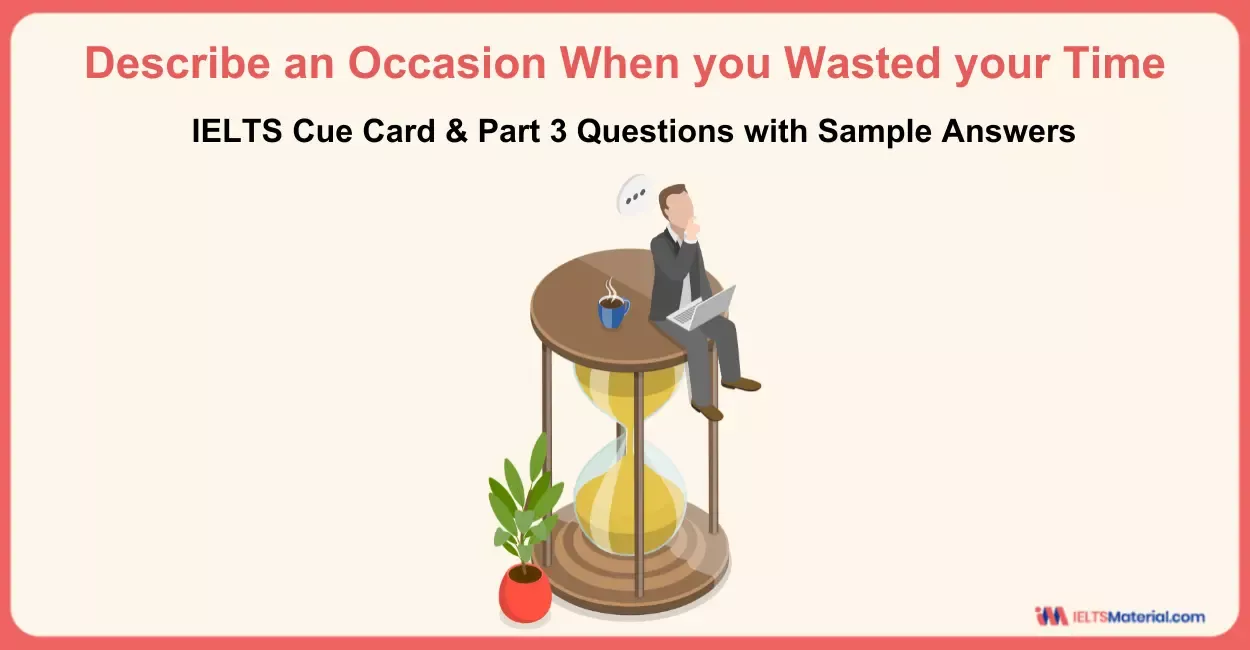

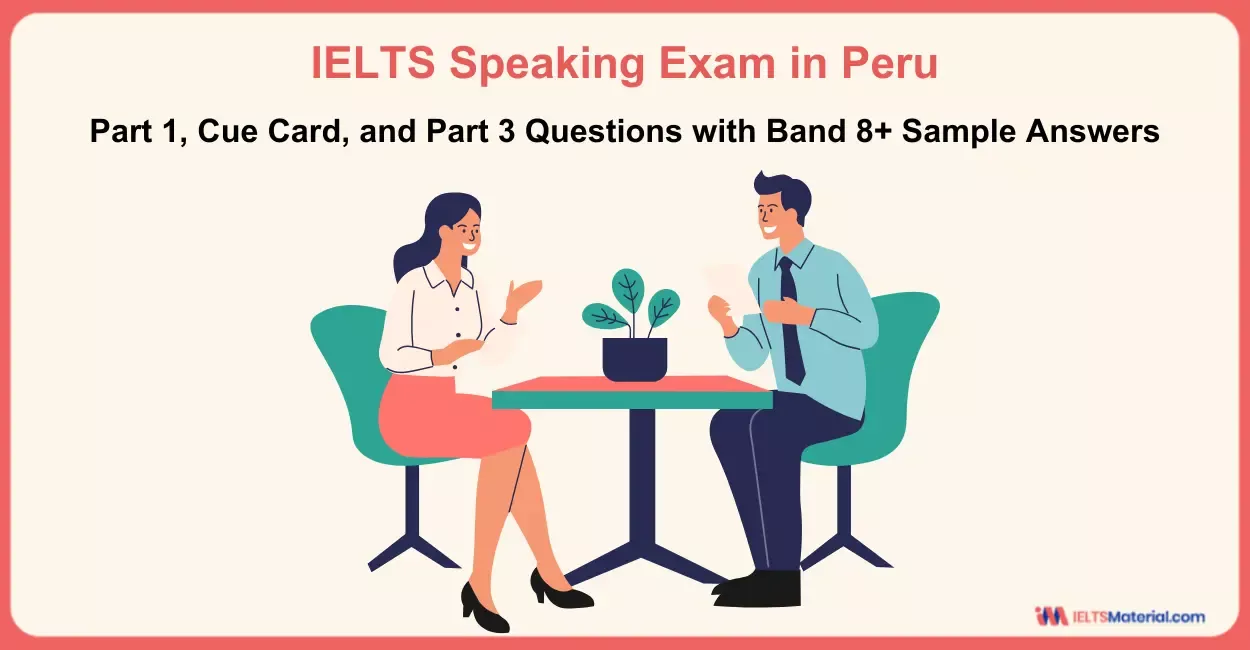
Recent Articles

Haniya Yashfeen
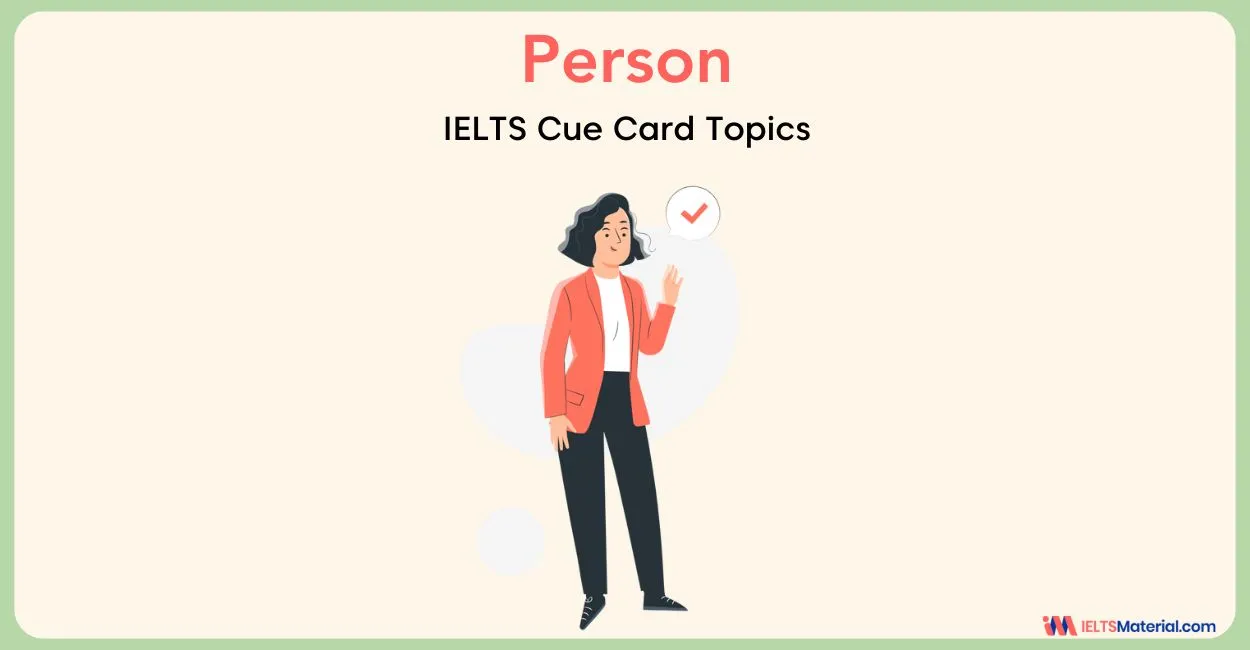
Kasturika Samanta

Nehasri Ravishenbagam


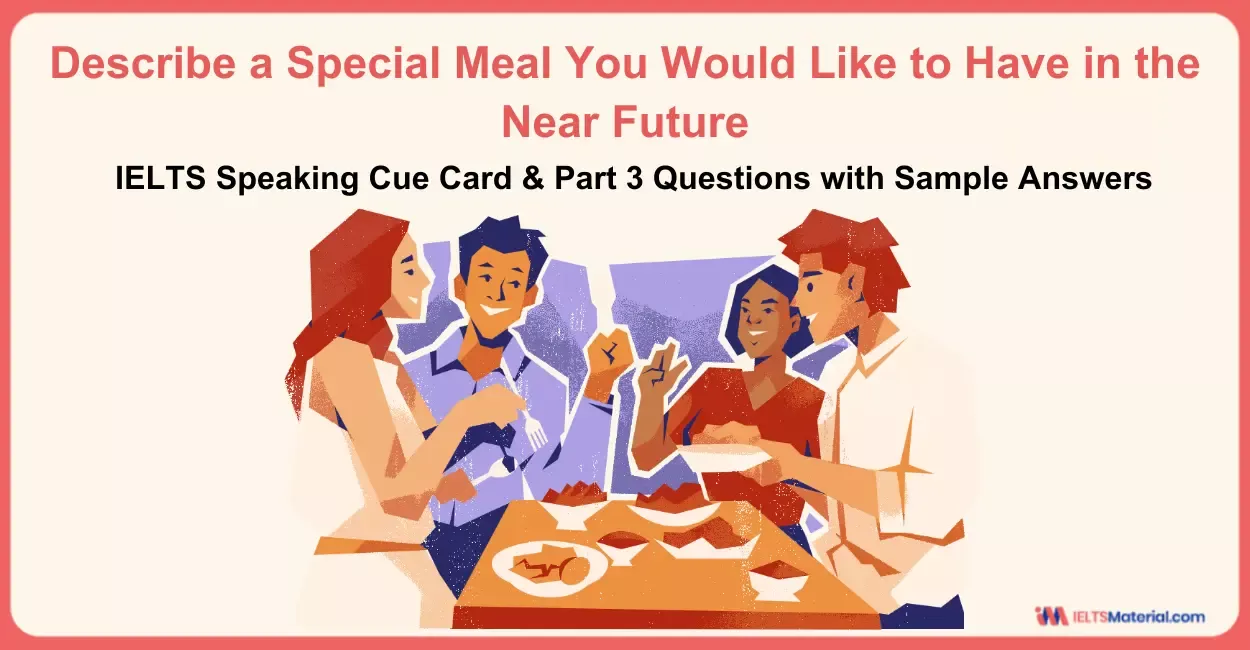
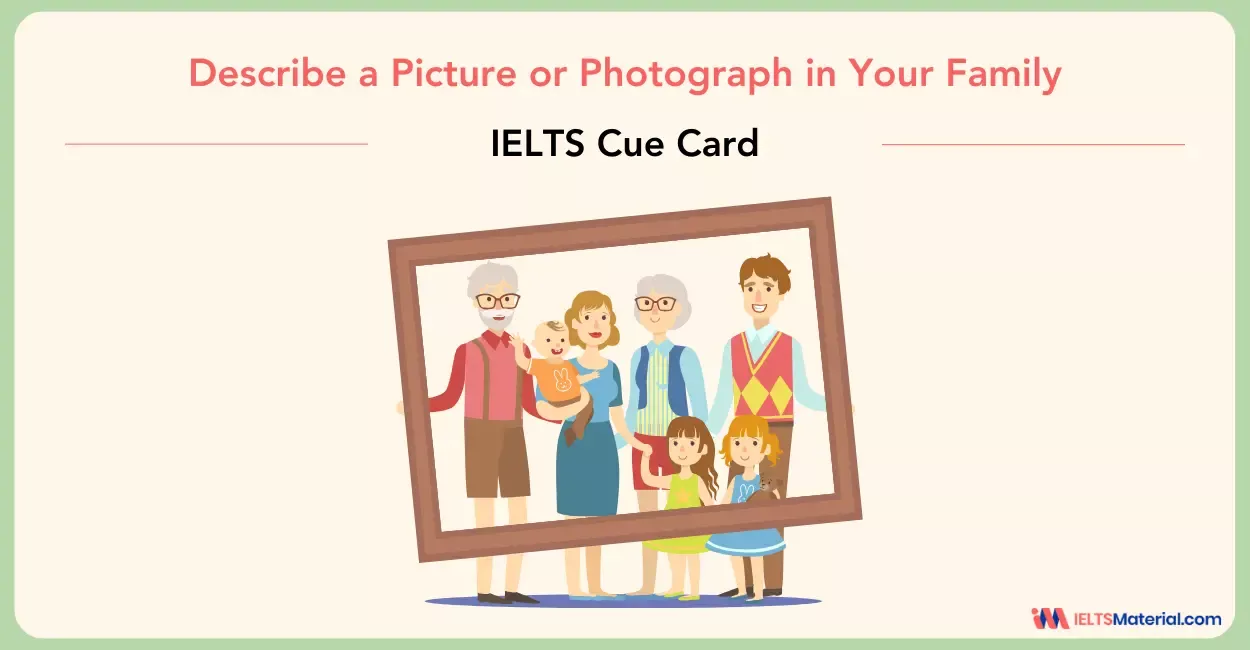


Post your Comments